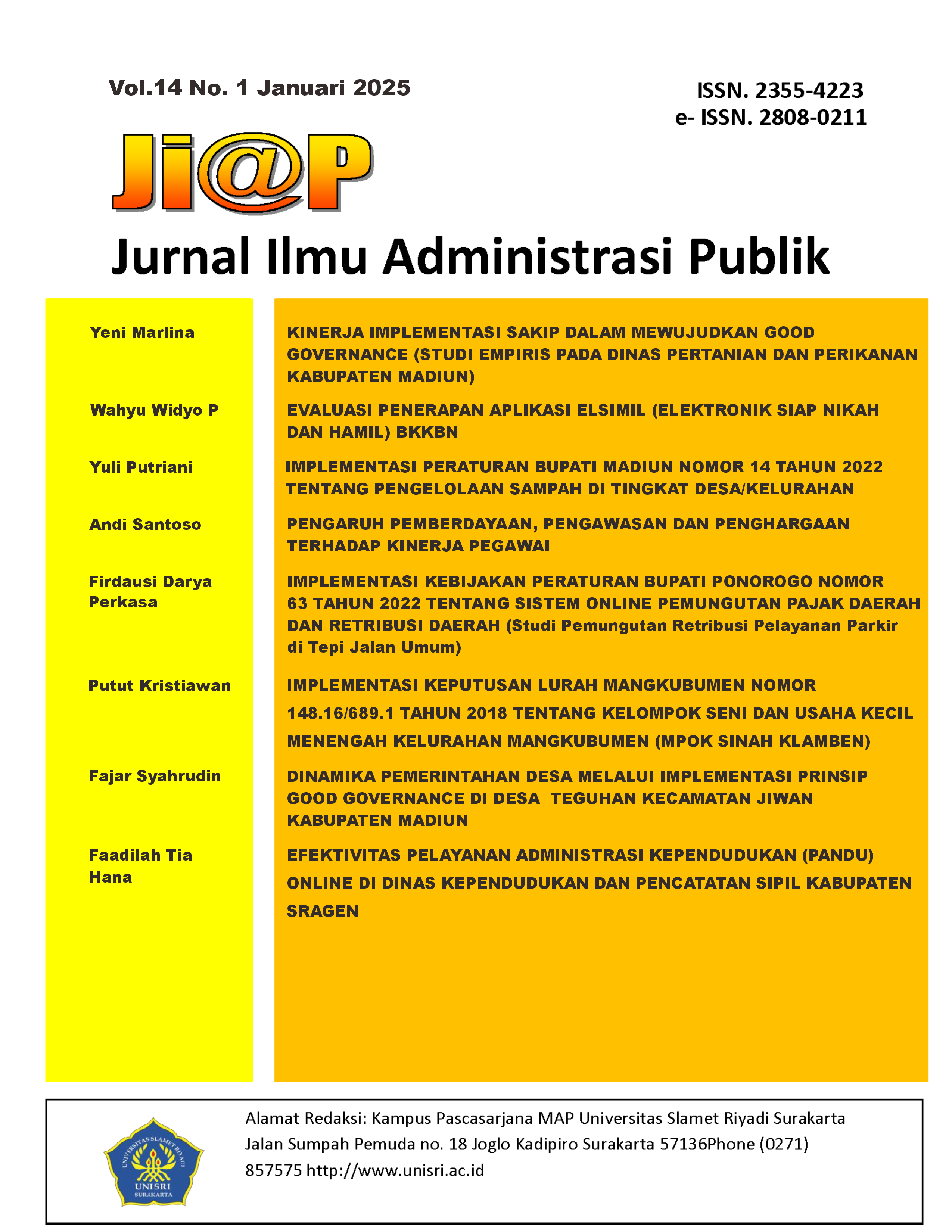IMPLEMENTASI PROGRAM KELUARGA HARAPAN (PKH) DI KELURAHAN SEWU
DOI:
https://doi.org/10.33061/jp.v14i1.10668Abstract
The research results show that the implementation of the Family Hope Program (PKH) in Sewu Village can be taken from various aspects, including its impact on the welfare of poor families, effectiveness of implementation, and support from the community. Evaluation of the program's impact on the welfare of poor families is crucial. Such as increasing access to education, health and the economy for PKH participants. The success of PKH implementation can also be evaluated in terms of implementation effectiveness. This includes targeting accuracy, distribution of aid, as well as administrative and bureaucratic efficiency. From the level of active community participation and the level of support provided. If the community is involved and supports the program, this can be a positive indicator. Recommendations for continuous improvement. This involves assessing weaknesses or challenges encountered during implementation and providing direction to improve them. In this way, the implementation of PKH in Sewu Village can reflect the extent to which the program achieves its goals of improving welfare and reducing social inequality. In accordance with the target setting data source comes from the Integrated Data for the Poverty Handling Program in accordance with Minister of Social Affairs regulation Number 10/HUK/2016 dated 3 May 2016 concerning the Mechanism for Using Integrated Data for the Poverty Handling Program.
Downloads
Published
How to Cite
Issue
Section
License
Copyright (c) 2024 Fahrul Ari Budiarto, Winarti Winarti, Aris Tri Haryanto

This work is licensed under a Creative Commons Attribution-NonCommercial 4.0 International License.
Authors who publish this journal agree to the following terms:
- Authors retain copyright and grant the journal right of first publication with the work simultaneously licensed under a Creative Commons Attribution License that allows others to share the work with an acknowledgement of the work's authorship and initial publication in this journal.
- Authors can separately make additional contractual arrangements for non-exclusive distribution published by the journal (e.g., publish it in a book), with an acknowledgement of its initial publication in this journal.
- Authors are allowed and encouraged to send their work via online (e.g., in the institutional repositories or their website) after published by the journal.













